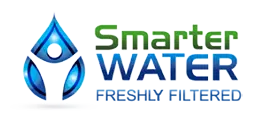The Economics of Bottled Water vs Filtered Systems
Should you invest in bottled water or a filtered system? It’s a simple question with no easy answer. There’s convenience to consider, cleanliness, the environment, etc. But if you’re looking at it from a purely economic standpoint (which most business owners are), it’s all a simple question of consumption and cost.
Here’s a breakdown of the potential costs of bottled water vs various filtered systems, and a final verdict on the most economical option.
Potential Costs of Bottled Water
The cost of bottled water depends on how much you consume and how you buy it. There are 3 different ways to provide bottled water for your office or home:
- Buy individual bottles or packs of water from the store
Individual bottles of water can cost equivalent cost per litre greater than $3, maybe a bit less if you buy them in bulk, significantly higher than the cost of fuel. Buying packs of water from the grocery store might work for a small family, but are completely economically infeasible for businesses or organizations.
- Refill water cooler bottles at the grocery store
This is a cheaper option. You do however have to pay for the jugs themselves and deal with transporting them to and from your workplace. It’s not really practical for a busy office or business. There is a significant cost to the business in time and effort.
- Have bulk water bottles delivered.
The bigger your business, the more important it is to get the strategy right, not just to comply with health and safety, but importantly to keep the workforce hydrated, happy and productive. becomes to provide everyone with fresh drinking water. While the water itself is cheaper than single bottles , you have to deal with regular ordering, deliveries, storage and heavy lifting. Water deliveries also may be infrequent, requiring your business to purchase and store a large number of bottles, which deteriorate in UV light from the moment they are bottled, as there is no chlorine as in the tap water supply.
Potential Costs of Filtered Systems
On the surface, Filtered Water Systems appear to be the logical choice. But they also require maintenance, cleaning, and replacement parts that can be costly. Here’s a breakdown of your filtered systems and potential associated costs:
- High-end carbon filter POU plumbed-in dispenser
High-end solid block activated carbon filters can cost $1500 or more to purchase. They have huge chilling tanks, and can also provide hot water. They also require cartridge replacements recommended twice a year, or more frequently if many people use the system. Replacement parts are expensive depending on the system, however this is by far the most popular and up-to-date option in today’s green economy. Most businesses going this route contract a supplier to supply the unit on a low fixed cost rental, including full servicing. The equivalent cost can be as low as $12 per week and some companies offer completely free set-up by a licensed plumber.
- Reverse Osmosis
Reverse osmosis systems are very expensive and complex. The numerous filter stages are costly in replacement filters The systems remove chlorine and all impurities however the downside is the water wastage, with 4 litres of water used to produce just 1 litre drinkable. It also requires monitoring of the membrane cartridge and replacement when not effective. These systems are more suited to specialist environments, dental practices, etc.
- Refillable pour-through GAC filter
Many people are attracted to the low cost of pour-through filter bottles, that have a filter placed in a refillable bottle sitting on the chiller. There are however many poor quality cheap units on the market. The compressor can easily fail on the chilling unit and replacement filters to fit the bottle can quickly become unavailable. The cheap option as we know if often not the best! The filter life is short and an office full of people relying on one such filter can quickly result in staff complaints.
Bottled or Filtered: The Final Verdict
How much money you spend on bottled vs filtered water really depends on the system you use and how much water your organization consumes. In the long run, filtered systems will always eventually become more cost-effective because you’re not paying for the water itself.
Here’s a graph that shows the fixed cost of a Fully Serviced POU water dispenser v’s bulk bottled water delivery. Based on the variable cost of between 2 and 6 bottles per week (for a larger business) at $11 per bottle v’s only $12 per week fixed cost for a POU serviced dispenser.
For year one, the cheapest option is:
- POU Filtered Dispenser
Wrapping up
Bottled water looks a lot more like an office luxury, as it turns out just about any filtered system is a better choice economically. This is all without mentioning the hassle of buying, transporting and storing bottled water and the health and safety issues of cleaning a bottled water dispenser. The trend now is definitely towards choosing a fully serviced filtered dispenser from a specialist service company. Smarter Water can help you with water coolers in Brisbane and surrounds.
Bottled water has its benefits. There’s low risk for contamination by bacteria, no need to pay for maintenance and replacement parts, and a lot of people think it tastes great. But if you’re looking at the question from an economic standpoint (like most people are), a high-end filtered system is the right choice for long-term use.




